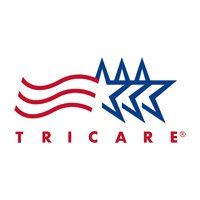CBT Not Working? Here Are A Few Reasons Why
Cognitive behavioral therapy (CBT) is widely considered the "gold standard" of mental health treatments. It brings together a range of techniques designed to help people understand their thoughts and behaviors and make changes to reduce distress or resolve difficulties.
However, not everyone finds the same success with CBT - so what could be causing this? Find out why as we look into a few reasons why CBT may not work for you and what other treatments could be more effective.
An Overview of CBT
Choosing healthy and realistic thoughts is an effective way to help us regulate emotions and control behavior. Cognitive-behavioral therapy (CBT) gives us the power to take control of our thoughts, allowing us to observe situations objectively and accurately assess them.
With CBT, we use evidence to support our beliefs and discern if our thinking is rational or irrational. This empowering process helps counterbalance unhealthy behaviors by choosing helpful thinking patterns that promote healthier outcomes in the present and long term. But how helpful are these techniques when other factors interfere with a person's ability to think rationally?
Unresolved Trauma Interferes with Thought Processes
While it's true that the impact of our thoughts is significant, those facing unresolved trauma also experience the impact of thoughts they cannot readily reframe when stressors are at play.
Because trauma leads to changes in a person's nervous system, present-day triggers from past events can leave them in an activated state of distress. And when someone is distressed, their ability to objectively assess their thoughts suffers, as intense emotions and triggers cloud their thinking.
CBT Doesn't Address the Root Causes of Complex Trauma
Given the complexity of traumatic experiences, cognitive behavioral therapy is not always the most effective therapeutic modality for healing from unresolved adverse experiences.
This is because trauma has a way of influencing our neurobiology and storing memories that are associated with powerful feelings and sensations. When an event or thought triggers these memories, it becomes hard to approach them objectively and challenge them through CBT interventions.
Although some CBT patients can eventually challenge their negative thoughts and approach their issues objectively, those with complex trauma may find it very hard to do so when struggling to remain calm in an emotionally charged state.
While throughout therapy, those with complex trauma can start to slowly recognize the connections between their thoughts, feelings, and behaviors, complex, unresolved trauma often goes beyond the scope of CBT. These trauma types require not just tools but a deeper exploration into the individual's life experiences to get to the root cause.
CBT Not Working? Consider New Approaches
If CBT alone isn't cutting it, considering alternative approaches like TMS Therapy or Ketamine could be a helpful next step in your journey toward emotional healing.
TMS Therapy uses magnetic pulses to interact with nerve cells in brain regions responsible for mood regulation, leading to improved neurotransmitter levels, improved mood, and calmer thinking.
Similarly, in well-structured therapeutic settings, ketamine can serve as a powerful rapid antidepressant while enabling psychological insights and shifts in awareness that can translate into lasting change.
If you are struggling to heal from severe depression, complex trauma, or other unresolved adverse experiences, contact us at the NC Institute of Advanced NeuroHealth to learn more about how TMS therapy or ketamine can help you work through the underlying causes and achieve the results you deserve.





















